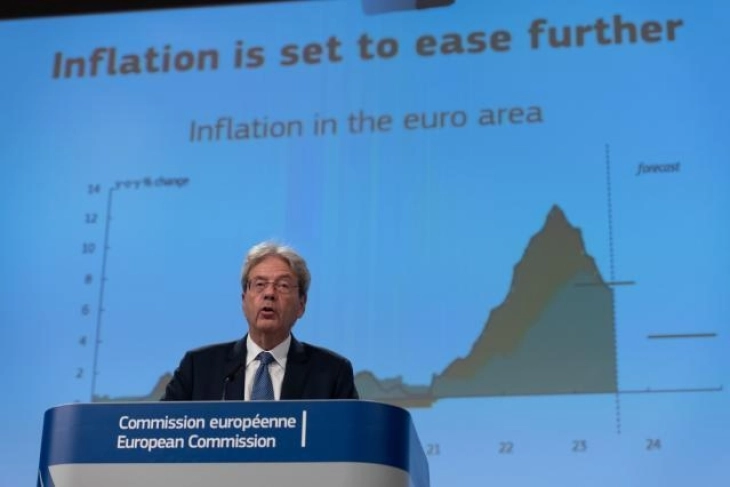EU economy to grow in 2023 slower than expected due to high inflation
- Economies of the 27-member European Union will grow at a slower-than-expected 0.8% in 2023 due to persistently high inflation, the European Commission said in its quarterly forecast published on Monday.

Brussels, 11 September 2023 (dpa/MIA) - Economies of the 27-member European Union will grow at a slower-than-expected 0.8% in 2023 due to persistently high inflation, the European Commission said in its quarterly forecast published on Monday.
The commission had initially forecasted EU growth of 1% for 2023. Its forecast for 2024 has been revised down to 1.4% from 1.7%, a press release said.
Figures for the 20 EU countries that make up the eurozone common currency will also post a slower-than-expected growth with 0.8% for 2023 - down from 1.1% - and 1.3% in 2024 - down from 1.6%.

The slow-down is caused by a weakened demand due to persistently high inflation rates, the commission said.
"The EU economy has suffered two massive shocks with the pandemic and Russia’s unprovoked war in Ukraine. The very high inflation rate has taken its toll, although it is now receding," European Commission Vice-President Valdis Dombrovskis said.
EU inflation rates are now projected to reach 6.5% in 2023 and 3.2% in 2024. In the eurozone, consumer prices are to rise by 5.6% in 2023 and by 2.9% in 2024.

Despite slower economic growth, the EU's labour market is "exceptionally strong," the commission said, with low unemployment rates, continued expansion of employment and rising wages.
"While our economy remains on a path of growth, uncertainty remains high and we need to monitor risks closely," Dombrovskis stated.
Russia's ongoing war against Ukraine, high interest rates, persistent inflation and the economic impacts of extreme weather events caused by climate change continue to pose risks to the bloc's economy, the commission said.







